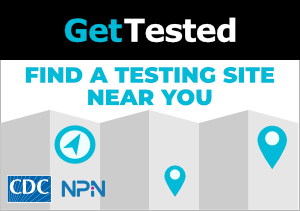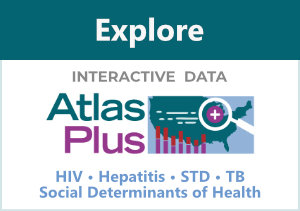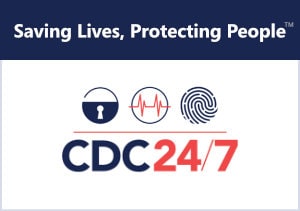General Schedule (GS) 0403 & 0401
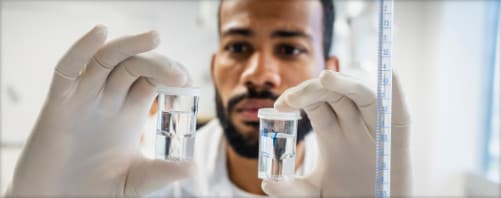
Introducing the GS 0403 (Microbiologists) and GS 0401 (Biologists) Job Series
Above all, CDC is a science agency. It leads with good science so public health experts and doctors can be informed to deliver better diagnoses and treatments, and so patients and disproportionately affected people can make better health decisions.
Microbiologists (General Schedule [GS] 0403) and biologists (GS 0401) are among CDC’s infectious disease detectives, conducting research on various microorganisms to understand how they work and can be used to benefit public health. Their research, findings and reports on various bacteria, viruses, algae, fungi, and parasites add to the body of science that supports CDC work and guidance around detecting, tracking, and eliminating harmful microbes in the environment, food, water, and medical devices. Within NCHHSTP laboratories, microbiologists and biologists conduct research and reference testing on HIV, viral hepatitis, STDs, and tuberculosis. They publish research papers, attend scientific conferences, and collaborate with other scientists both domestically and internationally. They also guide the development of government regulations for the use and management of microorganisms and supervise the safety of laboratories to ensure the safety of scientists and the public.
Ideal candidates for GS 0403 and GS 0401 series:
- Have at least a bachelor’s degree in microbiology, biology, or a closely related field.
- Are detail-oriented, persistent, and insatiably curious.
- Can work both independently and collaboratively.
- Are able to understand and apply laboratory regulations and standards.
- Can confidently share documented findings in the form of written reports and research papers.
- Have potential for growing into laboratory leadership.
Employee Perspectives
While microbiologists and biologists have a very specific skill set, CDC affords the opportunity to apply those skills in various ways—in, out, and adjacent to laboratory settings. Hear from three CDC scientists using their skills in different ways to make a difference within NCHHSTP laboratories.
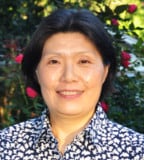
Youkyung Choi Ph.D.
Youkyung Choi has served as a microbiologist in the Laboratory Branch of NCHHSTP’s Division of Viral Hepatitis since 2010, where she conducts animal research, vaccine studies, and laboratory studies related to hepatitis B, C, and E virus infections. She began her science career at CDC in 2003 as a contractor with Northrop Grumman, eventually becoming a CDC Senior Service Fellow. During that time, she conducted hepatitis C vaccine animal research and participated in a study on host response to hepatitis E infection in pregnant women in Uganda. Her current work includes research on a dissolving microneedle patch (dMNP) for the delivery of hepatitis B virus (HBV) birth dose vaccine and mentoring junior scientists.
Choi says her position at CDC allows her to explore how diseases impact humans and develop new vaccines, all while balancing time for her family.
“I’m a pure scientist doing lots of basic research, which isn’t as common,” said Choi. “I have scientific questions and curiosities and that keeps me motivated and working in public health. It’s a good place to balance your work and family life. We don’t have pressure to write grants. We don’t have to make money for the organization.”
According to Choi, scientific curiosity, being a good writer, and the ability to withstand long hours in the lab are critical to being a good microbiologist. “My days are divided into two modes: experimental days and writing days. When you do an experiment, you spend lots of time planning. Once the experiment is done, you analyze the results. It can sometimes be tedious. You have to love working in the lab.”
Choi advises budding microbiologists to deeply research their desired specialty area as early as possible. She also suggests participating in scientific conferences, as they are important venues for professional development and meeting scientific collaborators to help run experiments.
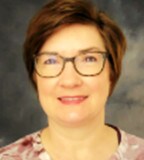
Melinda “Mindy” Dunn, Ph.D.
Ensuring lab staff know how to properly operate autoclaves and wear personal protective equipment (PPE). Teaching people what to do if a scientist falls ill or goes unconscious while performing an experiment. Making certain dangerous materials are handled safely. These duties all fall under the purview of Mindy Dunn, who serves as the biosafety officer for the Laboratory Branch of NCHHSTP’s Division of Tuberculosis Elimination (DTBE).
As DTBE’s ‘safety guru,’ Dunn is tasked with using her understanding of science to prevent incidents, accidents or injury and ensuring the safety of TB experiments run by the country’s leading public health agency. She manages all lab safety aspects of NCHHSTP’s tuberculosis (TB) laboratory, making sure scientists conducting experiments return home safely and that TB bacteria stays contained in the lab.
“The job is never the same and that makes it really interesting,” says Dunn. “My job is to make the lab easier for the laboratorians to do their work. I update SOPs (standard operating procedures), do biological and chemical assessments, and create new safety trainings. I train other laboratorians as we get new staff on board. I get to develop great relationships because I get to work with each individual one-on-one.”
Mindy has a Ph.D. in biomedical science with a concentration in microbial pathogenesis. This knowledge helps understand the unique safety challenges facing scientists and lab technicians and how to apply common-sense solutions.
Dunn recommends that scientists interested in being safety officers take every training available to them. “Take any training you can, especially if they are free, to improve your skills,” she says. “When I was at the Ohio Department of Health, we had a training budget and I maxed that out every year. Here we have great resources in the HHS (Health and Human Services) learning portal. I have taken courses I was not required to take, but it really added to my breath of knowledge.”
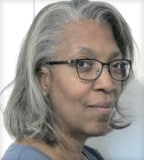
Vickie Sullivan, MLS (ASCP), MPH
When doctors and healthcare providers have a challenging or inconclusive HIV test sample, lack the facilities for proper HIV testing, they turn to the CLIA (Clinical Laboratory Improvement Amendments) HIV Reference Laboratory & Test Evaluation Activity, a national reference laboratory for HIV testing operated by CDC’s Division of HIV Prevention (DHP).
Vickie Sullivan serves as lead for the reference laboratory, which tests HIV samples received from across the country, ranging from difficult cases with discordant results to surveillance and general testing for submitters without the resources for testing. The lab also evaluates new HIV test methods to update testing guidance and improve the timely and accurate diagnosis of HIV. A lifelong laboratorian, Sullivan manages the day-to-day operations of the lab, ensuring compliance with CLIA and other federal regulations; that personnel are properly trained and follow safety, equipment, and policy protocols; that all actions are properly documented and reported; and that lab facilities are ready for inspection at any time.
“It’s a regulatory position,” says Sullivan. “There is a lot of documentation that must be done but know it’s necessary and I push through it. I really enjoy when my work helps people. When you’re testing for HIV, it uses an algorithm. When we can shed light to a physician about a result they were having trouble with, it helps the doctor figure out how to categorize that patient.”
Sullivan stresses the importance of “doing your homework” when deciding on a microbiology/biology specialty area because the work can vary greatly from organism to organism. She also suggests budding laboratorians collaborate with other scientists through scientific conferences and finding mentors, who are typically willing to share their expertise in particular areas.
If the GS 0403/0401 job series sounds like an exciting career path, consider joining our team.
